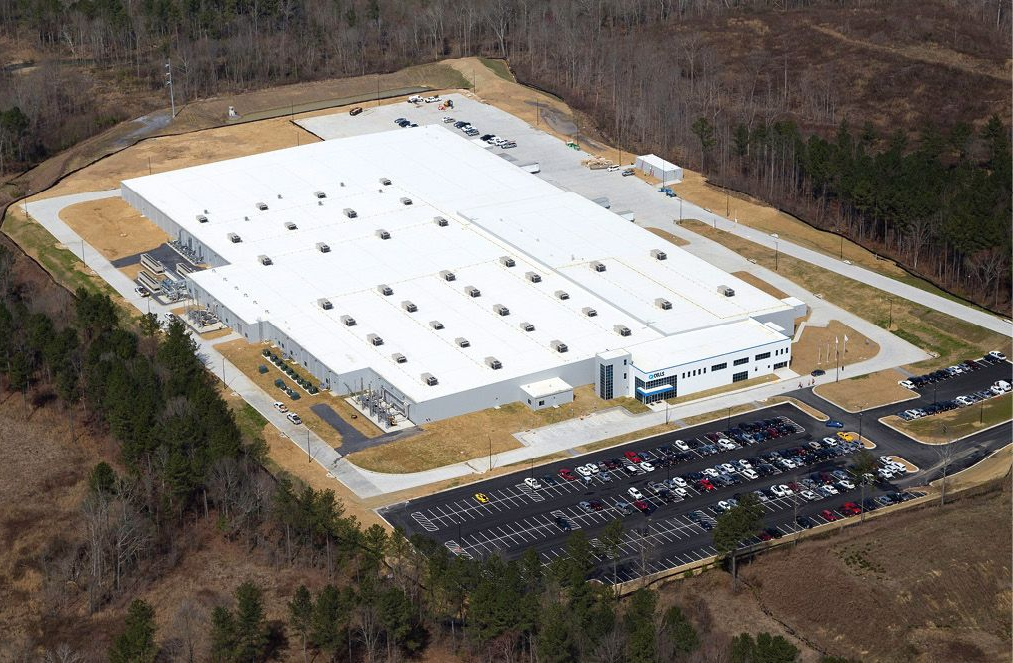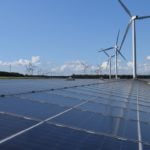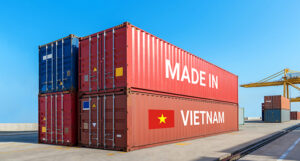Latest
In 2022, Joe Biden authorised the DOE to use the DPA to support domestic PV manufacturing. Image: Flickr
US president Donald Trump has rescinded a Biden-era executive order allowing the use of Defense Production Act (DPA) funds for domestic solar PV manufacturing.
In a flurry of rescindments of “harmful executive orders and actions”, Trump removed solar PV modules and module components, electrolysers, fuel cells and electric heat pumps from DPA eligibility. Other acts revoked included measures on minimum wage for federal employees and a number of international human rights and work policy initiatives.
This article requires Premium Subscription Basic (FREE) Subscription
Unlock unlimited access for 12 whole months of distinctive global analysis
Photovoltaics International is now included.
Regular insight and analysis of the industry’s biggest developments
In-depth interviews with the industry’s leading figures
Unlimited digital access to the PV Tech Power journal catalogue
Unlimited digital access to the Photovoltaics International journal catalogue
Access to more than 1,000 technical papers
Discounts on Solar Media’s portfolio of events, in-person and virtual
Or continue reading this article for free
The president said the moves were “necessary to advance the policy of the United States to restore common sense to the Federal Government and unleash the potential of American citizens.”
Joe Biden invoked the DPA – a cold-war era law introduced to encourage domestic production of strategically important products or materials – to cover solar modules and module components in June 2022 in an executive order which said the technologies were “industrial resources, materials, or critical technology items essential to the national defense.”
The decision gave the Department of Energy (DOE) the authority to use the DPA to support domestic manufacturing and deployment of solar PV products.
US solar module manufacturing has expanded significantly in the two-and-a-half years since Biden’s order. The Solar Energy Industries Association (SEIA) said that the US passed 50GW of annual nameplate module manufacturing capacity last year, roughly enough to cover US annual deployment demand in 2024.
However, the success of module producers is yet to reverberate further upstream. US cell manufacturing capacity is far behind module assembly levels, leaving the majority of the country’s module assemblers dependent on imported cells.
Cells – and the wafers, ingots and polysilicon which go into their production – represent a more costly and strategically significant manufacturing operation than module assembly. Industry figures have called for greater support for domestic solar cell and wafer manufacturing to increase US energy independence and security, something which may be made more difficult by president Trump’s recent action.
PV Tech publisher Solar Media will be organising the fourth edition of Large Scale Solar USA in Dallas, Texas 29-30 April. After a record year for solar PV additions in the US, the event will dive into the ongoing uncertainties on tariffs, tax credits and trade policies as more domestic manufacturing becomes operational. Other challenges, such as the interconnection queues and permitting, will also be covered in Dallas. More information, including how to attend, can be read here.
Nestled in Dallas, Texas, Large Scale Solar USA Summit 4th Edition is the nexus for project developers, capital providers, utilities, asset managers, and policymakers. Dive deep into the solar industry’s transformative growth, learn from the best, and discover strategies to boost utility-scale solar deployment nationwide.
PV Tech has been running PV ModuleTech Conferences since 2017. PV ModuleTech USA, on 17-18 June 2025, will be our fourth PV ModulelTech conference dedicated to the U.S. utility scale solar sector. The event will gather the key stakeholders from solar developers, solar asset owners and investors, PV manufacturing, policy-making and and all interested downstream channels and third-party entities. The goal is simple: to map out the PV module supply channels to the U.S. out to 2026 and beyond.
San Francisco Bay Area, USA
PV Tech has been running an annual PV CellTech Conference since 2016. PV CellTech USA, on 7-8 October 2025 is our third PV CellTech conference dedicated to the U.S. manufacturing sector. The events in 2023 and 2024 were a sell out success and 2025 will once again gather the key stakeholders from PV manufacturing, equipment/materials, policy-making and strategy, capital equipment investment and all interested downstream channels and third-party entities. The goal is simple: to map out PV manufacturing in the U.S. out to 2030 and beyond.
Returning for its 12th edition, Solar and Storage Finance USA Summit remains the annual event where decision-makers at the forefront of solar and storage projects across the United States and capital converge. Featuring the most active solar and storage transactors, join us for a packed two-days of deal-making, learning and networking.
Large Scale Solar Central and Eastern Europe continues to be the place to leverage a network that has been made over more than 10 years, to build critical partnerships to develop solar projects throughout the region.
Understanding PV module supply to the European market in 2026. PV ModuleTech Europe 2025 is a two-day conference that tackles these challenges directly, with an agenda that addresses all aspects of module supplier selection; product availability, technology offerings, traceability of supply-chain, factory auditing, module testing and reliability, and company bankability.
Read Next
Edify Energy has submitted plans for a 100MW solar-plus-storage project in New South Wales to the Australian government’s EPBC Act.
Developer Fotowatio Renewable Ventures (FRV) Australia has acquired a 190MW hybrid solar PV and energy storage project in Victoria from Acen Australia.
Located in the southern state of Mississippi, the Wildflower Solar project is the first investment in the state from the developer.
A study from consultancy LCP Delta has underlined the importance of flexibility to Europe’s energy transition as the dominance of renewable energy generation grows.
Through its US subsidiary, Mission Solar Energy, the Korean company will invest US$265 million in the construction of the plant.
Uncertainty over tax credits could cause 84% of investors and 73% of developers to decrease their activity in renewable energy, according to ACORE.
Subscribe to Newsletter
Most Read
Upcoming Events
Renaissance Dallas Addison Hotel, Dallas, Texas
Media Partners , Solar Media Events
Media Partners , Solar Media Events
https://www.pv-tech.org/trump-rescinds-bidens-defense-production-act-support-for-solar-manufacturing/





